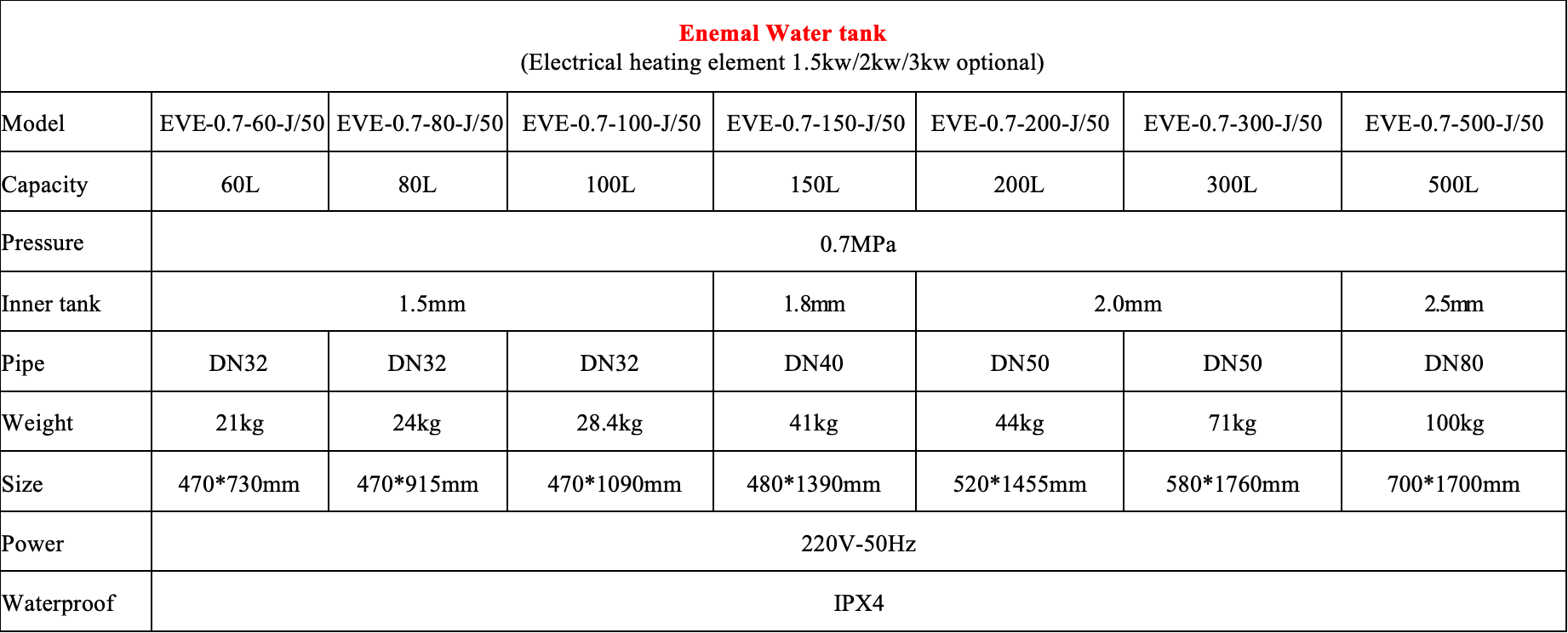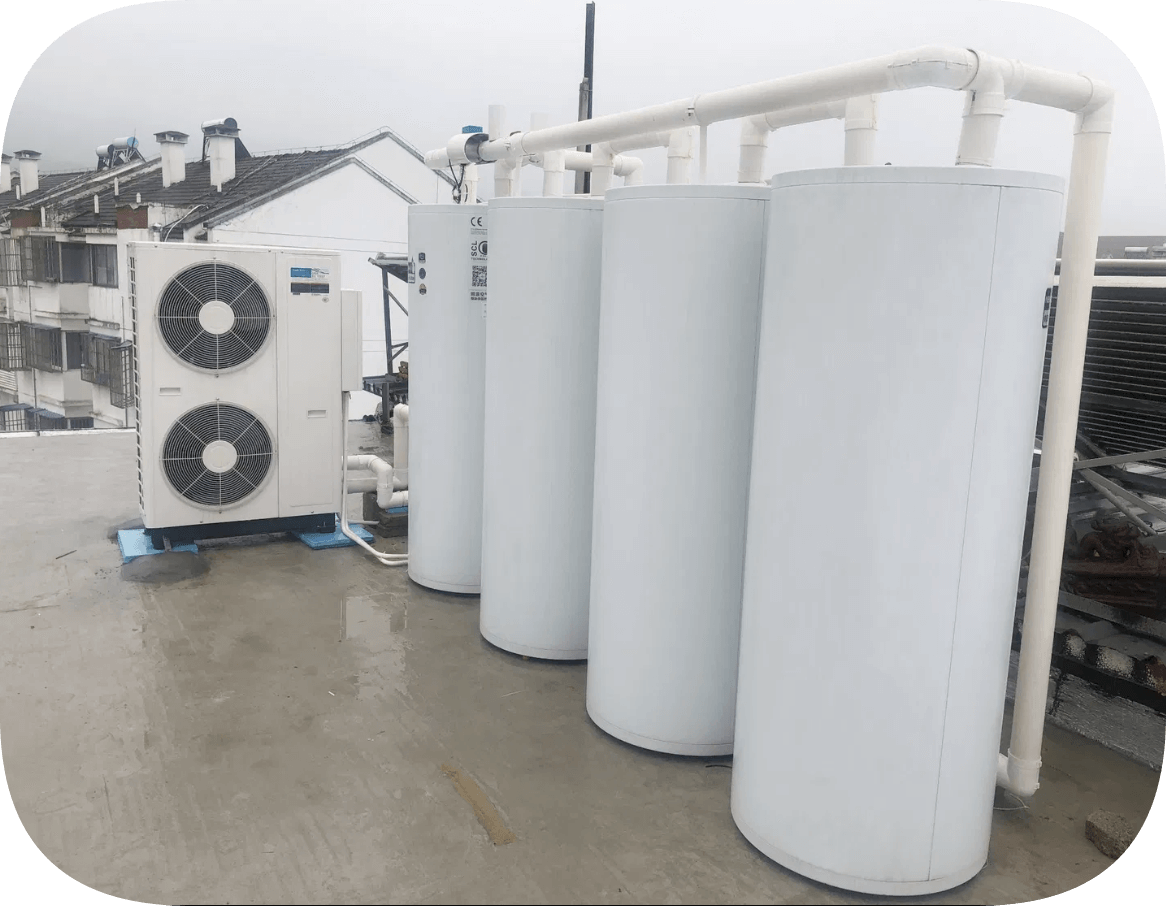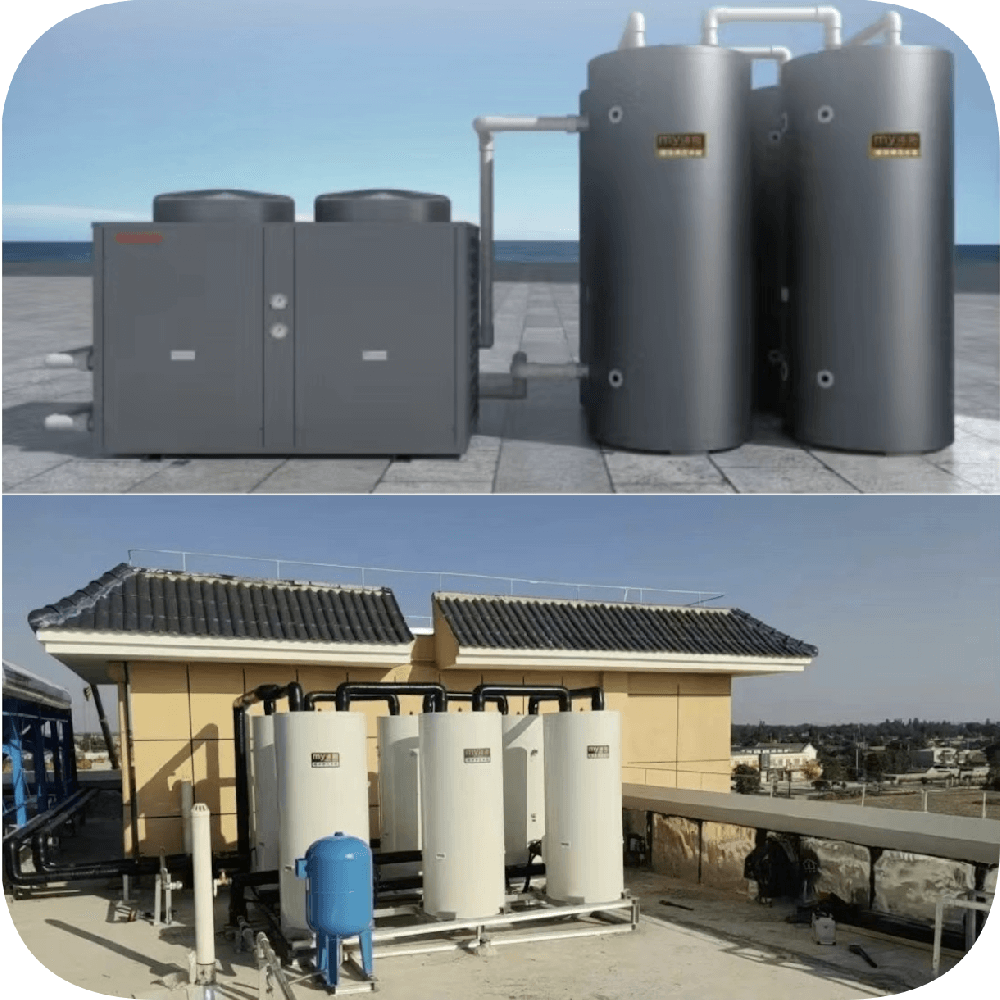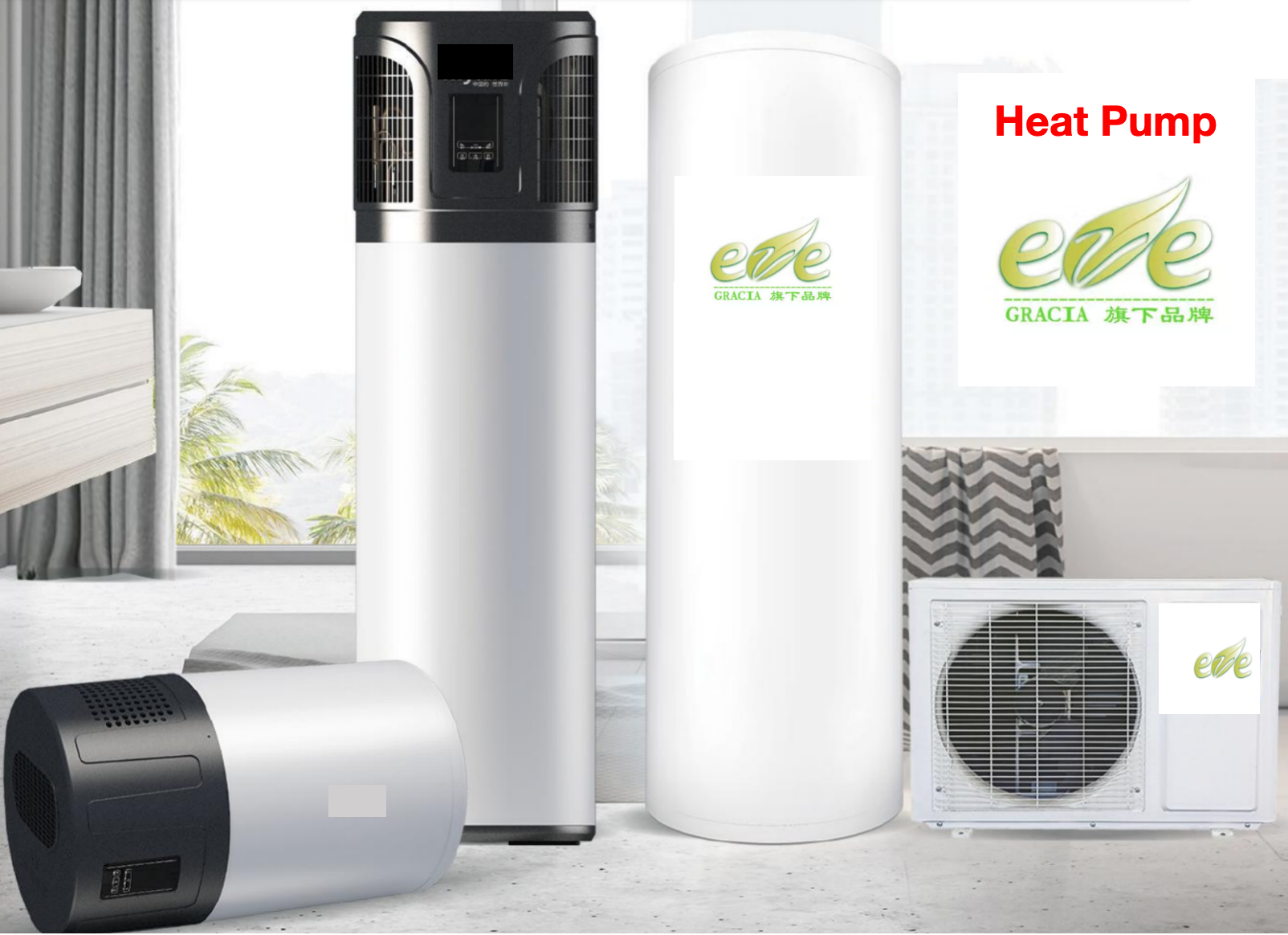Heat Pump Water Heaters
Enamel Pressure Water Tank
Enamel Pressure Water Tank


Enamel water tanks offer several advantages, making them a popular choice for both household and commercial water storage applications.
Here are the key benefits:
Advantages of Enamel Water Tanks:
1. Durability:- Long Lifespan: Enamel-coated tanks are highly durable and can last for many years with proper maintenance.
- Resistance to Wear and Tear: The enamel coating provides a hard, protective layer that resists scratches, dents, and other forms of physical damage.
2. Corrosion Resistance:- Protective Barrier: The enamel coating acts as a barrier against rust and corrosion, which is particularly important for metal tanks.
- Suitable for Various Water Types: Enamel tanks are resistant to the corrosive effects of different types of water, including hard water and chemically treated water.
3. Hygiene and Cleanliness:- Non-Porous Surface: The smooth, non-porous surface of enamel prevents the growth of bacteria, algae, and other microorganisms, ensuring the stored water remains clean and safe.
- Easy to Clean: The smooth surface makes it easy to clean and maintain, reducing the risk of contamination.
4. Temperature Resistance:- Thermal Stability: Enamel coatings can withstand high temperatures, making them suitable for storing hot water without degrading.
- Consistent Performance: The thermal stability ensures that the tank maintains its integrity and performance even under varying temperature conditions.
5. Aesthetic Appeal:- Attractive Finish: Enamel tanks often have a glossy, attractive finish that can enhance the visual appeal of the installation area.
- Color Options: They are available in various colors, allowing for customization to match the surrounding decor.
6. Chemical Resistance:- Resistant to Chemicals: Enamel coatings are resistant to many chemicals, making them suitable for storing water that may contain additives or treatment chemicals.
- Safe for Potable Water: The inert nature of enamel ensures that it does not react with the water, making it safe for storing drinking water.
7. Cost-Effectiveness:- Low Maintenance: The durability and resistance to corrosion and contamination reduce the need for frequent maintenance and repairs.
- Long-Term Savings: Although the initial cost may be higher than some other materials, the long lifespan and low maintenance requirements make enamel tanks cost-effective in the long run.
8. Environmental Benefits:
- Recyclable: Many enamel-coated tanks are made from recyclable materials, contributing to environmental sustainability.
- Reduced Waste: The long lifespan and durability mean fewer replacements and less waste over time.
Applications of Enamel Water Tanks:
- Household Use: Ideal for storing potable water, hot water, and rainwater harvesting systems.
- Commercial Use: Suitable for large-scale water storage in industries, hotels, hospitals, and other commercial establishments.
- Agricultural Use: Used for irrigation and livestock watering systems.
Summary:
Enamel water tanks offer a combination of durability, corrosion resistance, hygiene, and aesthetic appeal, making them a reliable and cost-effective choice for various water storage needs. Their ability to withstand high temperatures and resist chemical reactions further enhances their suitability for both household and commercial applications.
Enamel Pressure Water Tank

Heat pump water heaters are energy-efficient devices that provide hot water for both household and commercial use. They work by transferring heat from the surrounding air to the water, rather than generating heat directly. Here’s a detailed look at their functions and benefits:
Functions of Heat Pump Water Heaters:
1. Heat Transfer: - Absorbing Heat: extract heat from the ambient air using a refrigerant system. This process is similar to how a refrigerator works but in reverse.
- Heat Exchange: The absorbed heat is transferred to the water stored in the tank, raising its temperature.
2. Energy Efficiency:- Reduced Energy Consumption: By using ambient heat, HPWHs consume significantly less electricity compared to traditional electric resistance water heaters.
- Cost Savings: Lower energy consumption translates to reduced utility bills, making HPWHs cost-effective over time.
3. Hot Water Supply:- Consistent Supply: provide a consistent supply of hot water, meeting the demands of both household and commercial settings.
- Storage Tank: Most HPWHs come with an insulated storage tank to hold the heated water until it is needed.
4. Environmental Impact:- Lower Carbon Footprint: Because they use less electricity, contribute to lower greenhouse gas emissions, especially if the electricity comes from renewable sources.
- Eco-Friendly Refrigerants: Modern use environmentally friendly refrigerants that have a lower impact on the ozone layer.
5. Versatility:- Multiple Modes: Many offer different operating modes, such as hybrid (combining heat pump and electric resistance), electric-only, and heat pump-only modes, allowing users to optimize performance based on their needs.
- Climate Adaptability: While are most efficient in warm climates, many models are designed to work effectively in a range of temperatures.
Benefits in Household and Commercial Services:
Household:
- Energy Savings: Homeowners can significantly reduce their energy bills by using.
- Space Heating: In some setups, HPWHs can also contribute to space heating, providing additional energy savings.
- Quiet Operation: HPWHs operate more quietly compared to traditional water heaters.
Commercial:
- High Demand: Commercial establishments with high hot water demand, such as hotels, gyms, and restaurants, can benefit from the efficiency and cost savings.
- Scalability: systems can be scaled to meet the large hot water needs of commercial buildings.
- Sustainability: Businesses aiming for green certifications or sustainability goals can leverage to reduce their environmental impact.
Installation and Maintenance:
1. Installation:
- Location: HPWHs should be installed in locations with adequate airflow and space, such as basements or utility rooms.
- Professional Installation: Proper installation by a qualified technician ensures optimal performance and safety.
2. Maintenance:
- Regular Checks: Periodic maintenance, including checking the refrigerant levels and cleaning the air filters, ensures efficient operation.
- Longevity: Regular maintenance can extend the lifespan of the HPWH, providing reliable service for many years.
Summary:
Heat pump water heaters are an energy-efficient, cost-effective, and environmentally friendly solution for providing hot water in both household and commercial settings. By leveraging ambient heat, they offer significant energy savings and contribute to lower utility bills and reduced carbon footprints. Their versatility and scalability make them suitable for a wide range of applications, from single-family homes to large commercial establishments.





